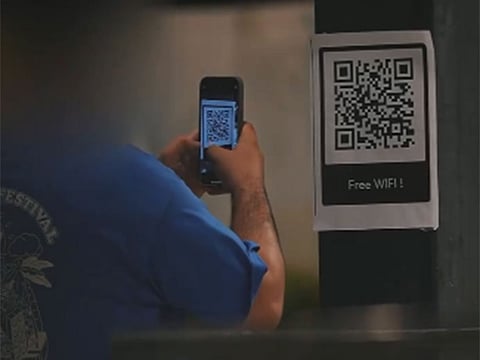Public falls for ‘Free WiFi’ QR trap in Sharjah cybersecurity experiment
Sharjah Police experiment shows public easily misled by fake QR codes

Sharjah: A public awareness experiment conducted by Sharjah Police has revealed how easily individuals can fall victim to cyber risks through the unchecked use of QR codes.
As QR codes become increasingly common across restaurants, retail outlets and advertising, officers sought to measure how many people would scan a code without verifying its source. For the exercise, police placed an unbranded QR code in a public area carrying the message “Free WiFi” and monitored the response.
The results were surprising: 89 members of the public scanned the code without attempting to determine who had placed it or whether it was legitimate.
Human behaviour, not technology, is the risk
Sharjah Police said the experiment highlights that the problem lies not in QR technology but in user behaviour. Many people, they noted, tend to scan QR codes instantly, unaware that a malicious link could redirect them to fraudulent websites, install spyware, access private accounts, or trigger unauthorised downloads.
“A single scan can expose sensitive information,” Sharjah Police explained, stressing that cybercriminals often rely on user interaction rather than technical loopholes.
Simple precautions can prevent major harm
Police urged users to treat QR codes with the same caution they would apply to unfamiliar links received through email or messaging apps.
Officers reinforced one rule of digital safety:
Before scanning, ask: ‘Do I trust the source?’
If the answer is uncertain, they advise users not to proceed.
Awareness is the first line of defence
Sharjah Police said the findings underline the need for greater public vigilance as cybercrime continues to evolve. With the growing reliance on QR codes for payments, access services and online transactions, authorities emphasised that taking a moment to verify authenticity can prevent significant digital harm.
The force confirmed it will continue launching awareness initiatives to educate the community on emerging digital risks and promote safer online habits across the emirate.








